Selecting the right trustee is one of the most important decisions you will make when creating a revocable living trust. With the guidance of an experienced Chicago revocable trusts lawyer, whether you’re based in Lincoln Park, Lakeview, or the Loop, you can ensure your trust is properly structured, includes all essential clauses, and that your trustee understands their legal and fiduciary obligations. For residents across Downtown Chicago, River North, and nearby Cook County communities, thoughtful planning helps ensure your trust is managed with integrity and precision at every stage.
If you are planning or updating your trust, consulting a skilled Illinois estate planning attorney can help you avoid costly mistakes and select the right person or institution to carry out your wishes. No matter if you are considering a family member, a corporate trustee, or a combination of both, professional legal guidance can make all the difference. To learn more or schedule a consultation, contact Illinois Estate Law at (312) 373-0731 today.
The Trustee’s Role: A Serious Legal Responsibility, Not Just an Honor
Many people think of naming a trustee as an “honor,” something they bestow upon a spouse, eldest child, or trusted friend. This is a dangerous misconception. A trustee is a fiduciary, meaning they are legally bound to uphold the highest standard of care under the law.
Even when the position is held by a family member, it is a professional role with serious legal and financial responsibilities. When your successor trustee steps in, either upon your incapacity or death, they assume legal control over your trust assets and must act solely in the best interests of the beneficiaries.
A trustee’s core duties include:
- Managing and Protecting Trust Property: Taking inventory of all assets, securing property, and assuming legal control over bank and investment accounts.
- Investing Trust Assets Prudently: Managing investments in accordance with legal fiduciary standards of prudence and diversification.
- Keeping Meticulous Records: Maintaining detailed, accurate records of every transaction, every dollar in and every dollar out.
- Filing and Paying Trust Taxes: While the trust is revocable and the grantor is alive, it is typically treated as a grantor trust and reports income under the grantor’s personal return (no separate Form 1041). After the grantor’s death or when the trust becomes irrevocable, the trustee must obtain an EIN, file Form 1041 annually, and pay any trust-level taxes.
- Communicating with Beneficiaries: Providing updates and information regarding trust administration in a timely and transparent manner.
- Making Distributions: Disbursing assets strictly according to the terms outlined in the trust document.
This is not a ceremonial title. It is an active, demanding job that requires time, diligence, organization, and often, a thick skin. A good trustee understands that they are managing not just money, but the trust, intentions, and legacy of the person who created it.
| Duty | Description | Illinois Legal Context |
|---|---|---|
| Managing and Protecting Trust Property | Locate and secure trust assets, take control of accounts, and safeguard property. | Trustees must administer the trust in good faith and in accordance with its terms. |
| Investing Trust Assets Prudently | Invest assets wisely, balancing risk and return, and avoid conflicts of interest. | Trustees are required to act prudently and loyally, and to diversify investments when appropriate. |
| Keeping Meticulous Records | Keep accurate records of all income, expenses, and transactions. | Trustees must maintain and provide accurate accountings to beneficiaries. |
| Filing and Paying Trust Taxes | Determine tax status, file required forms, and pay trust taxes on time. | Trustees are responsible for ensuring the trust complies with federal and state tax requirements. |
| Communicating with Beneficiaries | Inform beneficiaries of trust activity and provide regular updates or accountings. | Trustees are required to communicate and provide information to current beneficiaries. |
| Making Distributions | Distribute assets only as instructed in the trust document and to the proper beneficiaries. | Trustees must follow the trust’s terms precisely when making distributions. |
Mary Liberty – Chicago Revocable Trust Lawyer

Mary Liberty
Mary Liberty is a Chicago-based revocable trust lawyer who helps Illinois families protect their assets and plan for the future with confidence. Through her modern, virtual law practice, she offers estate planning and probate services designed to be accessible, affordable, and stress-free. Her approach combines legal precision with genuine empathy, ensuring every client receives clear guidance and a customized plan that reflects their goals and family dynamics.
Known for her transparent flat-fee model and approachable style, Mary helps clients create and manage revocable living trusts that simplify estate administration and provide lasting peace of mind. Whether assisting young families, blended households, or busy professionals, she is committed to delivering personalized, high-quality legal solutions with honesty, clarity, and care.
Your Trustee’s Four Fiduciary Duties Under the Illinois Trust Code
Your trustee does not just answer to your family—they answer to the Illinois legislature and the Cook County Probate Division of the Circuit Court, which oversees most trust disputes in the Chicago area. The Illinois Trust Code (760 ILCS 3/) clearly defines the trustee’s legal obligations, and in 2024, Cook County probate filings involving fiduciary disputes rose by nearly 12%, highlighting how critical it is for trustees in the Chicago region to understand and follow these duties precisely.
The Duty of Loyalty (760 ILCS 3/802)
This is the foundation of fiduciary duty. A trustee must administer the trust solely in the interests of the beneficiaries. Their loyalty must be complete and undivided. Illinois law presumes a conflict of interest when a trustee enters a transaction involving themselves or close relatives (760 ILCS 3/802(b)). Such transactions are voidable unless expressly authorized, court-approved, or consented to by all affected beneficiaries.
For example, imagine you name your son as trustee, and your trust owns your family home. Your daughter, the other beneficiary, lives out of state. If your son decides to buy the house from the trust, Illinois law presumes this transaction to be a breach of his duty of loyalty. Your daughter can sue, and your son would have to prove in court that the transaction was entirely fair and proper.

The Duty of Prudence (760 ILCS 3/804 & Article 9)
A trustee must administer the trust as a prudent person would, exercising reasonable care, skill, and caution. This duty is further defined under Article 9 of the Illinois Trust Code, also known as the Illinois Prudent Investor Law.
This law holds trustees to the objective standard of a prudent investor. They must manage a diversified portfolio with an overall investment strategy designed for long-term stability and growth. Holding excess idle cash or casually picking a few stocks without a documented, portfolio-wide strategy may violate this duty—the prudent-investor rule evaluates decisions in the context of the entire portfolio and the trust’s purposes.
Lack of experience is not a defense. A family member with no financial background will be held to the same professional standard as a bank trust officer. If the trustee fails to invest properly and the portfolio loses value, they can be held personally responsible for the losses.
The Duty of Impartiality (760 ILCS 3/803)
When a trust has two or more beneficiaries, the trustee must act impartially and give due regard to each beneficiary’s respective interests. They cannot favor one over another.
This duty often creates problems in blended families. Many trusts provide income to a surviving spouse for life, with the remaining principal passing to children from a previous marriage after the spouse’s death.
For example, you name your second wife as trustee. She receives income from the trust during her lifetime, while your children are entitled to the remaining principal after her death. Her personal interest may be to maximize income through risky, high-yield investments. Doing so could endanger the principal, violating her duty of impartiality to your children. This type of arrangement frequently leads to family disputes and litigation.
The Duty to Inform and Account (760 ILCS 3/813.1)
Trustees must keep beneficiaries informed and provide at least annual accountings showing receipts, disbursements, and assets. Under 760 ILCS 3/813.1, this requirement applies to trusts that became irrevocable or whose trustees accepted duties on or after January 1, 2020.
For older trusts, 760 ILCS 3/813.2 applies and may allow modified or waived reporting.
This duty can be demanding. For trusts covered by 760 ILCS 3/813.1, at least annual accountings are required for specified beneficiaries. Older trusts under 760 ILCS 3/813.2 may allow modified or waived reporting. Either way, trustees must keep adequate books and can be compelled by the court to account if they fall short.
Evaluating Your Three Trustee Options
When creating an Illinois revocable trust, you generally have three options for who will serve as trustee. Each choice comes with important advantages and trade-offs that should be considered carefully before making a final decision.
Option 1: The Individual Trustee (Spouse, Adult Child, or Friend)
An individual trustee is often a family member or close friend chosen because they know you well and understand your wishes. This personal connection can make them seem like the most natural choice.
Pros:
- They know you, your family dynamics, and your intentions.
- They are often viewed as the “free” or low-cost option.
Cons:
- They typically lack the legal, tax, and investment expertise required to manage a trust properly.
- They may face intense emotional pressure from other beneficiaries, especially in blended or strained families.
- They are at high risk for conflicts of interest and potential legal missteps.
While this option can work for small, simple trusts, it can create major problems when real estate, investments, or complex family relationships are involved.
Option 2: The Corporate or Professional Trustee (Bank or Trust Company)
A corporate or professional trustee brings institutional knowledge and objectivity to trust administration. Banks and trust companies employ professionals with expertise in law, taxation, and fiduciary investment standards.
Pros:
- They offer deep, specialized expertise in legal compliance, taxes, and investment management.
- They are impartial and free from family dynamics or emotional conflicts.
- They are regulated, insured, and provide continuity. A bank does not retire, become incapacitated, or take time off.
Cons:
- They can feel impersonal, especially for families who value personal relationships.
- They charge annual administrative fees. However, as the Illinois State Bar Association notes, the assumption that an individual trustee is always “cheaper” is often a myth once accounting, investment, and legal costs are factored in.
For many families, the peace of mind and professionalism of a corporate trustee outweighs the cost.
Option 3: The Hybrid Model (An Individual and Corporate Trustee as Co-Trustees)
Some families choose a combination approach, appointing both an individual and a corporate trustee to serve together. This structure allows the family member to provide personal insight while the corporate trustee ensures compliance and objectivity.
Pros:
- Combines personal familiarity with professional expertise and impartial oversight.
- Offers checks and balances that reduce the risk of errors or conflicts.
- Provides continuity, even if one co-trustee can no longer serve.
Cons:
- Requires cooperation and communication between co-trustees.
- Decision-making can be slower if the trustees disagree.
Despite these challenges, the hybrid model often provides the best of both worlds, especially for larger estates or families with complex financial and emotional dynamics.
Trustee Selection Mistakes That Can Derail Your Estate Plan
Even the most carefully drafted trust can fail if the wrong trustee is chosen. Across Chicago’s North Side and nearby communities, attorneys often see the same costly selection mistakes repeated by families with the best intentions. Below are three of the most common and damaging errors to avoid.
Naming a Beneficiary as the Sole Trustee
This is the single most common mistake. For example, you name your daughter as trustee, and she is also one of three beneficiaries. You have now placed her in a direct conflict with her siblings and the law. Her personal financial interest as a beneficiary conflicts with her fiduciary duties of loyalty (Section 802) and impartiality (Section 803).
Although risky, this arrangement can be structured correctly, but only through careful drafting by an experienced estate planning attorney. If a beneficiary-trustee can distribute assets to themselves beyond an ascertainable standard—for health, education, maintenance, or support (the HEMS standard)—that power may be treated as a general power of appointment, causing possible estate-tax inclusion. Limiting distributions by the HEMS standard prevents this issue.
This legal standard, defined by the IRS, limits her ability to make distributions to herself solely for her health, education, maintenance, or support. When written properly, this provision can reduce tax exposure and preserve her fiduciary integrity.
Believing That Naming Co-Trustees Creates “Checks and Balances”
Many people, and even some inexperienced attorneys, believe that appointing two individuals, such as two children, as co-trustees will create accountability and prevent abuse. In reality, it often creates conflict and gridlock.
Under 760 ILCS 3/703, co-trustees act by majority decision. With only two co-trustees, a majority requires both to agree—so deadlock is possible unless the trust document provides a tie-breaker or delegation mechanism.
Consider this example: you name your son and daughter as co-trustees. Your daughter wants to sell the family home to pay expenses, but your son refuses because he is emotionally attached to it. The trust becomes deadlocked. No one can sell the home, and no bills can be paid. The only resolution is for one sibling to sue the other in probate court, which is precisely the kind of family dispute your trust was intended to prevent.
Failing to Name Successor Trustees
Your chosen trustee may be capable and willing to serve today, but circumstances can change over time. They may pass away, become incapacitated, move out of state, or simply decline the responsibility later.
If you fail to name at least two successor trustees in order of preference (for example, “Primary Trustee: my spouse. First Successor: my sister. Second Successor: XYZ Trust Company.”), your trust can be left without a leader.
If a vacancy arises and no successor is named, a majority of the current distributees or permissible distributees may appoint a successor trustee under 760 ILCS 3/704. Only if they fail to agree will a court appointment be necessary.
The Hybrid Trustee Model for Blended Families and Complex Assets
For many Illinois families, the best practice is not choosing between an individual or a corporate trustee but combining both. By naming an individual, such as a trusted child, to serve alongside a corporate trustee, you can achieve the benefits of personal insight and professional management at the same time.
This hybrid model is often the most effective way to protect your assets and preserve family relationships. It allows each trustee to focus on their strengths and responsibilities.
The Corporate Trustee Handles the Technical and Financial Responsibilities
The corporate trustee takes on the complex, high-stakes tasks that require professional expertise. By statute (760 ILCS 3/809), a corporate co-trustee generally has custody of trust assets unless all trustees agree otherwise.
The trust document can assign investment management, accounting, or tax duties primarily to the corporate trustee, while the individual trustee focuses on family insight and beneficiary needs.
The Individual Trustee Provides Personal Insight and Understanding
The family member co-trustee contributes personal knowledge of the family’s circumstances and the beneficiaries’ needs. This trustee can offer valuable input when the trust allows discretion in distributions, helping ensure decisions reflect the spirit of your wishes and your family’s real-world needs.
When beneficiaries request distributions, the corporate trustee acts as the impartial decision-maker. It can approve or deny requests based on the terms of the trust, which protects the family member co-trustee from being placed in the middle of emotional or financial conflicts. This structure allows family relationships to remain intact while maintaining full compliance with fiduciary duties.
The hybrid trustee model provides the best of both worlds: the compassion and understanding of a family member combined with the objectivity, professionalism, and continuity of a corporate institution. For blended families, large estates, or trusts with complex assets, this model offers the most balanced and secure approach to long-term trust management.
Protect Your Legacy with the Right Trustee
Selecting the right trustee for your Illinois revocable trust is one of the most important steps in ensuring your estate plan works exactly as intended. The person or institution you choose will be responsible for managing your assets, following your wishes, and protecting your beneficiaries with integrity and care. A well-chosen trustee can make the difference between a smoothly administered trust and one that leads to conflict or financial loss.
Working with an experienced Chicago revocable trust attorney, serving clients throughout Downtown Chicago, Lincoln Park, Hyde Park, and Oak Park, can help you structure your trust for long-term peace of mind. Whether your assets include a condo in Streeterville, investment property in Lakeview, or a family home in Evanston, Illinois Estate Law provides tailored guidance for every stage of trust administration. To discuss your options or schedule a consultation, call (312) 373-0731 today.




